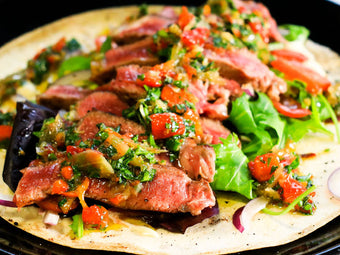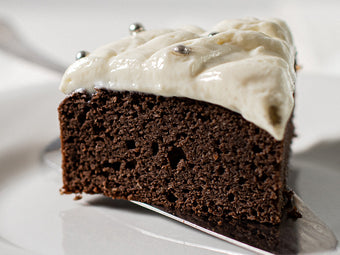Why it’s important to eat enough fibre
Lo-Dough - the high-fibre, low-carb bread alternative
Do you know why fibre is so good for your health?
Dietary fibre can be found mainly in fruits, vegetables, whole grains and Lo-Dough. It is best known for its ability to prevent or relieve constipation. But fibre can provide other health benefits, such as helping to maintain a healthy weight and lowering your risk of diabetes, heart disease and some types of cancer.
What is 'gut health' and how do I improve my gut health?
Fibre plays an important role in digestive health. It is the fuel the colon cells use to keep them healthy. Fibre also helps to keep the digestive tract flowing, by keeping your bowel movements soft and regular. Alongside other gut healthy foods like probiotics, fibre can promote a healthy gut, with great positive ramifications for your overall brain and body health. For further reading, you might like to check out this blog on fibre, featuring the testimony of various health professionals.
Types of fibre that promote a healthier gut
Dietary fibre, also known as bulk, includes the parts of plant foods your body can't digest or absorb. Unlike other foods, such as fats, proteins or carbohydrates, fibre isn't digested by your body. Instead, it passes through your stomach, small intestine and colon and out of your body.
Fibre is commonly classified as soluble, which dissolves in water, or insoluble, which doesn't dissolve.
- Soluble fibre. This dissolves in water to form a gel-like material. It can help lower blood cholesterol and glucose levels. Soluble fibre can be found in oats, peas, beans, apples, citrus fruits, carrots, barley and psyllium.
- Insoluble fibre. This promotes the movement of material through your digestive system and increases stool bulk, so it can be of benefit to those who struggle with constipation. Insoluble fibre can be found in whole-wheat flour, wheat bran, nuts, beans and vegetables, such as cauliflower, green beans and potatoes.
The amount of soluble and insoluble fibre varies in different plant foods.
Benefits of a high-fibre diet
A high-fibre diet:
- Normalizes bowel movements
- Helps maintain bowel health
- Lowers cholesterol levels
- Helps control blood sugar levels
- Aids in achieving a healthy weight
- Helps you live longer
Your best fibre choices
If you are not getting enough fibre each day, you may need to boost your intake. Good choices include:
- Fruits
- Vegetables
- Beans, peas and other legumes
- Nuts and seeds
- Lo-Dough
Best foods for gut health
Alongside high fibre foods, you want to include fermented and pro-biotic foods in your diet to promote healthy bacteria in your gut. This can include things like live yoghurt, kefir, miso, sauerkraut, kombucha and kimchi.
Worst foods for gut health
Refined or processed foods such as processed meat, pulp-free juices, white bread, pasta and non-whole-grain cereals are all lower in fibre and full of nutritionally empty calories. Also an abundance of alcohol is bad bad for your gut microbiome.
Tips for fitting in more fibre
- Jump-start your day - Fruit and low-sugar syrup waffles
- Switch to whole grains
- Bulk up baked goods - High Fibre Guinness Chocolate Cake
- Eat more fruit and vegetables - 7 Veg Pizza
Also, drink plenty of water -fibre works best when it absorbs water!













